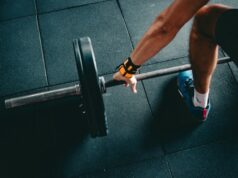When you think of consuming protein after a workout, you might think of a heavy lifter, body-builder type with bulging biceps scarfing down protein shakes and buckets of chicken after a lifting session–and you may decide that after-workout protein is not for you.
But the reality is that consuming protein post-workout is an important step in any fitness journey, not just the kind that involves 100 pound weights. Protein can help runners, soccer players, tennis players, bikers, and any other active person gain muscle and feel better.
However, it’s important to know how your body processes post-workout protein, how it gives you sustainable energy, and what are some lean proteins to eat in order to achieve the best results.
Here is some information to help you start adding protein into your workout routine, the right way.
How Protein Works to Build Muscle
You may have never thought about what happens to your muscles while you’re playing sports or doing yoga. While there is a more complicated science behind it, it can be put it simply: exercise causes a breakdown of muscles in the body.
And, of course, this muscle needs to be built back up after a workout, which is where consuming protein comes in. Protein you consume after exercise is broken down into amino acids, which supplies you with the nutrients required to repair and rebuild your muscles.
So, each time you take in protein after a workout, you will notice your muscles growing bigger and stronger as the protein blocks build.
How Protein Gives You Energy
After a long and difficult workout, you’re usually left feeling exhausted and void of energy; you’ve worked hard and burned a lot of calories, and it’s only human to feel drained. Again, protein can help.
Not only does protein after a workout build muscle mass, but it gives you energy to sustain you throughout the day. Because proteins take far longer than other nutrients to break down in your body, they provide a long-lasting and more sustainable source of energy.
When You Should Consume Protein
The best time to consume protein in order to maximize muscle gain is a topic constantly debated by fitness experts. However, an often recommended time frame is around 15-60 minutes after a workout.
This 45 minute period is known as the anabolic window, which many believe is the time that the muscles absorb the highest amount of nutrients. But if you don’t get a chance to consume protein in that window, don’t worry.
Most experts suggest that taking protein any time up to two hours post-workout will help build muscle mass and give you results. With that said, however, building muscle doesn’t only happen immediately after exercise but throughout the day.
So, it’s important that you’re including protein in your diet all day long, fostering a continuing muscle build.
What Types of Protein You Should Consume
There are a good deal of ways to consume your after-exercise protein; you can dissolve your powder in a drink, munch on a protein bar, or eat a protein-rich meal.
Popular protein powders include Whey protein, Casein protein, and Soy protein, all with similar functions but nuanced benefits. However, if you’re looking for your protein to come in heartier meal form, there are countless lean proteins that are healthy and muscle-building.
There are meats and fishes such as turkey, chicken, salmon, and tuna. For the vegetarians, protein-rich foods include peanut butter, eggs, greek yogurt, or almonds.
Protein is an essential part of a workout routine. Protein helps build muscle and gives you sustainable energy, as long as you consume the type you enjoy at the right time.
So, next time you go for a run, lift weights, or even go out for a friendly game of volleyball, remember the value of protein and the positive impact it can make on your body.
Consuming protein is easy, and it goes a long way.











